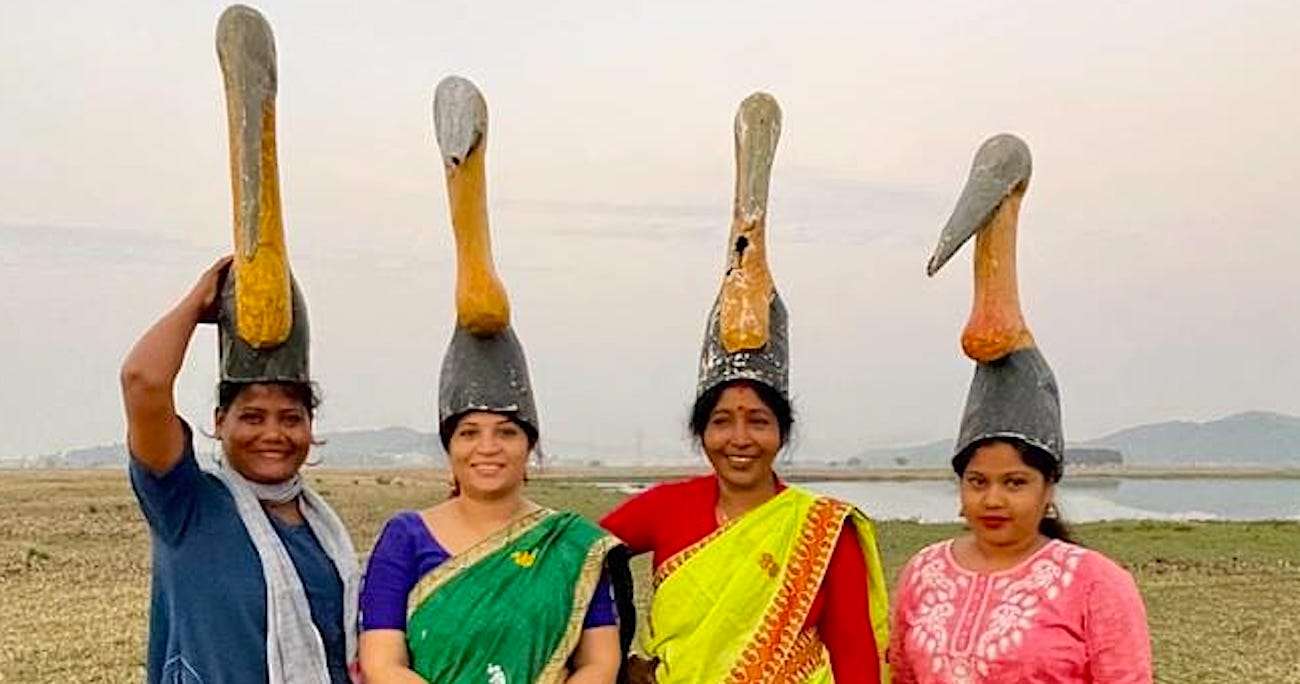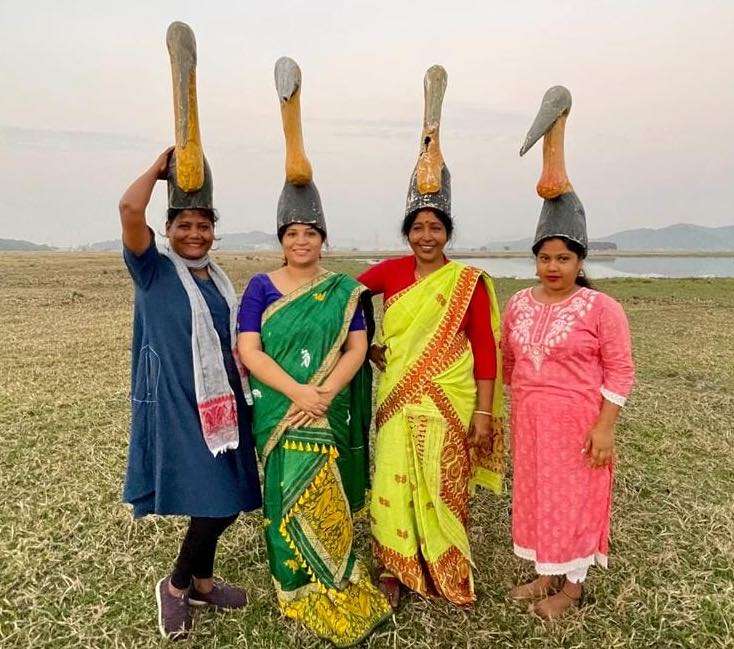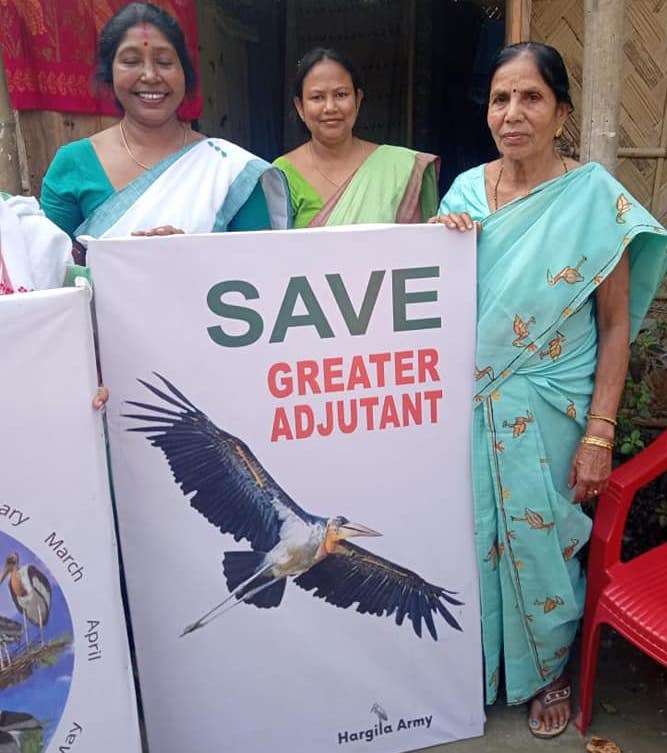Conservation Zoos Have Powerful Potential to 'Reverse Extinction' Study Shows
A new study shows that zoos and aquariums around the world working to return species extinct in the wild have about a 50/50 success rate.

Changing attitudes towards conservation in the Indian state of Assam have these women wearing paper-mache hats to support one of the world's most endangered storks.
Once reviled for their foul smell, carrion-filled diet, and unhandsome appearance, the greater adjutant has become a welcomed member of communities where it was once killed as a pest thanks to the pioneering work of a conservation hero.
Dr. Purnima Devi Barman credits her "mothering instinct" for her interest in the protection of the greater adjutant (Leptoptilos dubius) - or hargila (meaning "bone swallower" in Assamese).
The bird has been persecuted for its traits mentioned above, as well as a belief that they were bringers of bad omens, and can now only be found in two Indian states and Cambodia. It was during her pursuit of a Ph.D. in stork biology that Dr. Barman rushed to the scene of a village where residents had cut down a nest tree, resulting in several injured and dead chicks.
Seeing the prejudice with which the villagers treated the nesting stork made her realize she needed to change opinions in Assam or the greater adjutant would go extinct.
She began to hold festivals to celebrate people in the villages along India's Brahmaputra River who had kadam or burflower trees in their yards, honoring them as protectors and guardians of a rare bird. Everyone likes to be appreciated, and the tactic quickly began to work and ensure that the adjutants had safe places to nest.
During these occasions Dr. Barman would use the opportunity to explain that, with a diet exclusively of carrion, the greater adjutants played a crucial role in keeping the ecosystem free from the disease vectors like dead animals.

She became renowned among global conservationists for mobilizing 10,000 women into the "Hargila Army" whose job it is to advocate for and protect the storks.
"Conservation is all about uniting people and building ownership," Barman told The Guardian. "I've always believed that, if given a chance, women can make a big difference in conservation."

From just a few nests in 2008, Barman's unique, all-hands-on-deck approach to the bird's security has increased the number to 200 in 2018, and the number of individual storks has climbed back above 1,000 in Assam.
In 2021, Barman established the Hargila Learning and Conservation Centre in a government school in Pacharia village, where volunteer women use songs and games to encourage children to protect the birds when they grow up.
This year Dr. Barman picked up the recent UN Environment Programme's Champions of the Earth award, while last year she was named World Female Ranger, and received the highest female civilian honor from the Indian central government: the Nari Shakti Puraskar.
SHARE This Exceptional Woman And Her Important Missions On Social Media…
Be the first to comment